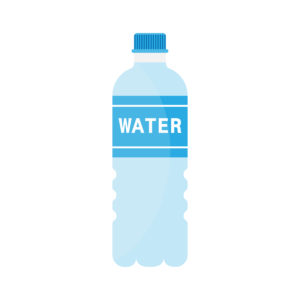Are you tired of always dishing out cash at a 7-11 for your next hydration fix? Tired of wastefully throwing a perfectly good H2O receptacle in the recycling bin? Then FSC has just the solution you’ve been looking for: brand new water fountains which include an automatic sensor for filling any kind of reusable bottle, or refilling one of your used disposable bottles! Some of the buildings which include these new fountains are Horton Hall, Thompson Hall, Laffin Hall and Gleeson Hall. With our Renewable Energy & Sustainability Center, electric-vehicle charging station, and various other sustainability projects, FSC prides itself in being an environmentally friendly campus. Not only is this beneficial for you, but it has a tremendously positive impact with regard to what is a now rapid climate change that everyone is accountable for.
If there’s any time to start reducing your plastic waste and overall carbon footprint, now would definitely be the time to do so. According to the Water Project website, waste produced by plastic water bottles take “over 1,000 years to bio-degrade[sic],” and create toxic fumes when incinerated for disposal. If you read further on the Water Project’s site, you’ll find another alarming fact: even if you do recycle your water bottle, “only PET bottles can be recycled,” so there is a good chance that the water bottle would be discarded (Source: thewaterproject.org). As many of you may have seen on popular media today, overloading our oceans with plastic waste causes significant harm to marine life, like fish, turtles, and even coral reefs. By reusing an old disposable bottle, or buying your own sports bottle, you would substantially cut back on your plastic waste. Even better if you encourage your friends, classmates, or colleagues to do the same!
Taking our focus off water bottles for the time being, there are many other great ways to reduce your carbon footprint. If you’re hoping to set a meaningful goal for yourself, this may be the right path for you. A big factor in your carbon footprint is dependent on your method of transportation. Walking, biking, and public transportation are among some of the best options for reducing your carbon footprint created by travel. Electric and hybrid vehicles also have either reduced or no-carbon emissions whatsoever; and as mentioned previously, there’s an electric vehicle charging station at FSC! If you are a commuter student at FSC and want to partake in reducing your own carbon footprint, click the link here to learn more about our public transit system: https://www.farmingdale.edu/commuter/top-transit-questions.shtml
Other ways to reduce your carbon footprint include washing your laundry in cold water, and hang-drying instead of using a machine dryer. Choosing electric home/yard appliances like stoves and lawnmowers also reduces your impact. Of course, supporting local sustainable and environmentally conscious movements is beneficial as well. Finally, and perhaps most importantly, do NOT litter under any circumstances! While this should be obvious, some people are oblivious to this very simple concept; and if you see litter in public spaces, take some of your precious time and throw it in the trash or recycling bin. Your community, your local ecosystem, and ultimately your planet will thank you.
Specifically for students, there are many ways you can have a positive impact on the environment aside from what was mentioned previously. Taking notes electronically instead of buying notebooks is one way to ensure you aren’t making any paper waste. Of course, be sure to check in with your professor if this is okay before you start doing so; perhaps mentioning that you’re aiming to lighten up your carbon footprint will convince them to allow you! Buying digital textbooks is another way to be environmentally conscious, as long as they are offered for the class you are taking. If not, renting textbooks is a great second choice. Finally, for dorming students, doing small things such as lessening your general water usage, turning off appliances that you aren’t using, and using energy-efficient light bulbs can all add up to a more environmentally friendly education. You can learn more by following the link to the FSC Renewable Energy & Sustainability Center’s recommended sites: https://www.farmingdale.edu/academics/centers-institutes/resc/hotlinks/index.shtml
So if you’re looking to help save the planet and restore our environment, FSC has many resources available for you to get started doing just that. For further information on the school’s renewable energy and sustainability efforts, visit www.farmingdale.edu. Any effort you make to lessen your environmental impact aids in the greater cause, and may just help reverse this seemingly boundless damage.
